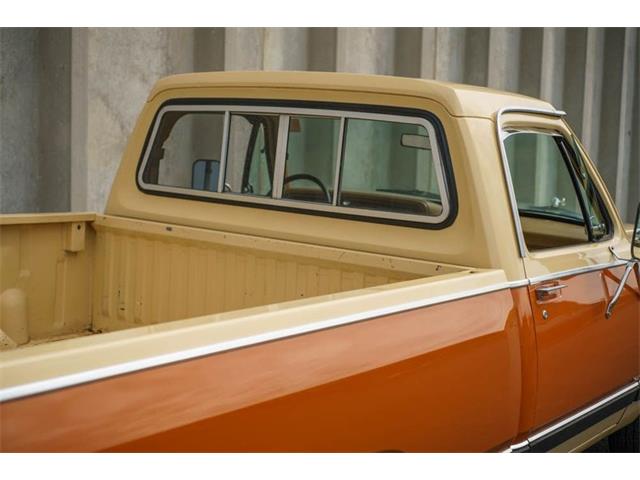
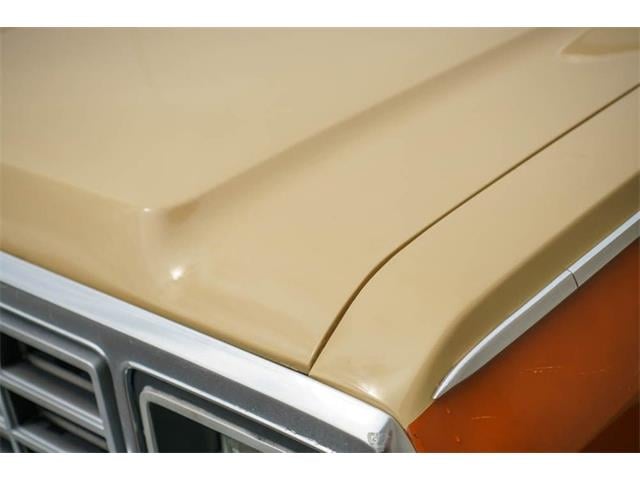
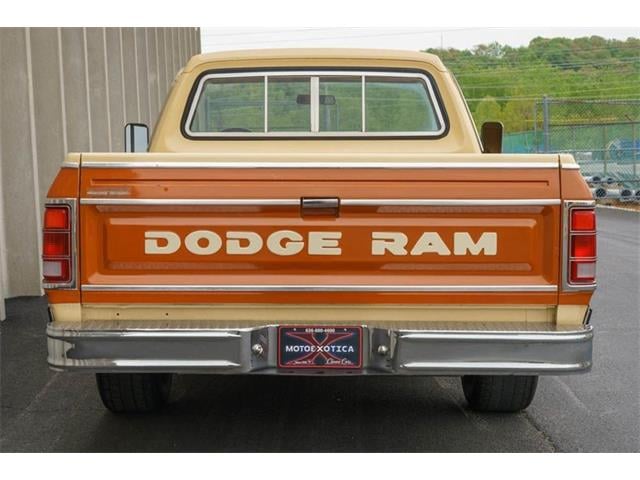
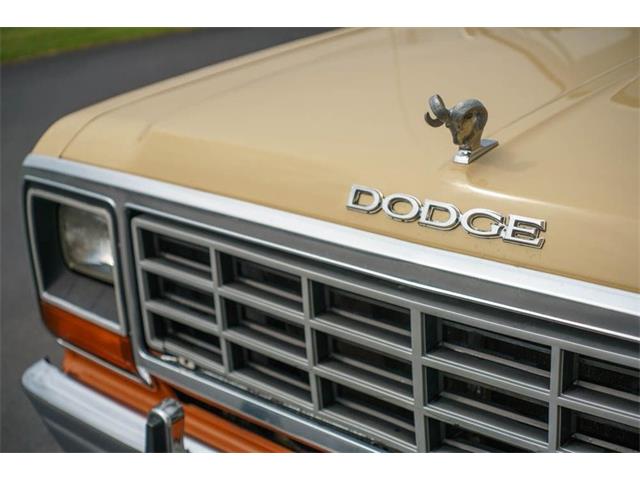
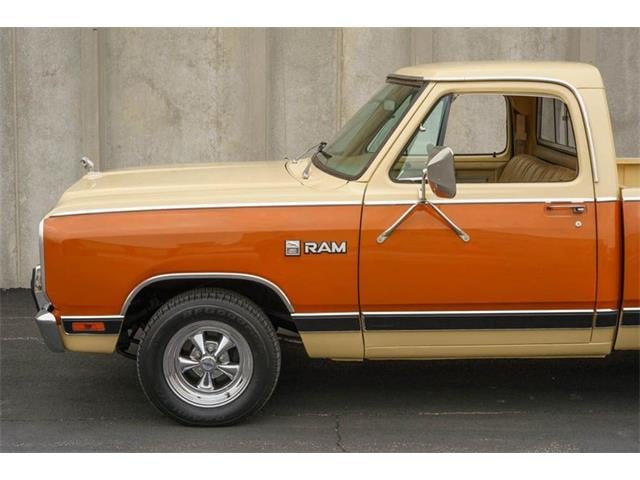
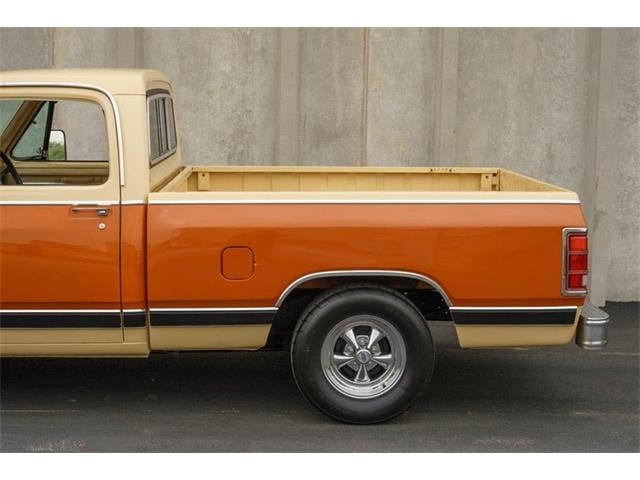
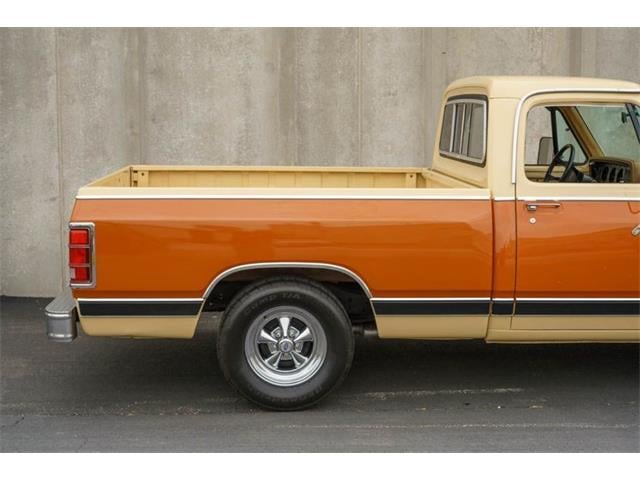
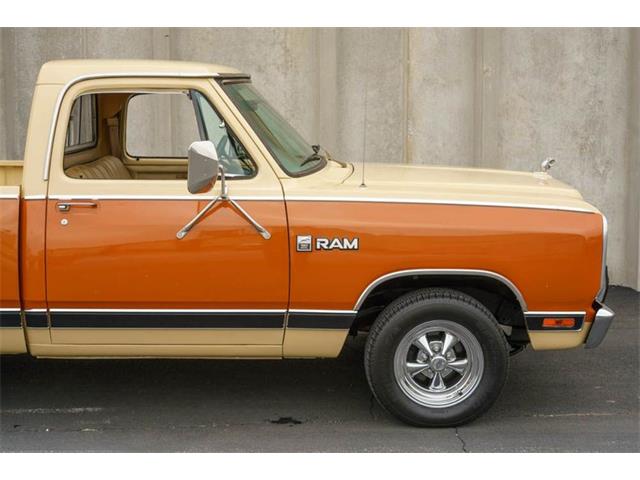
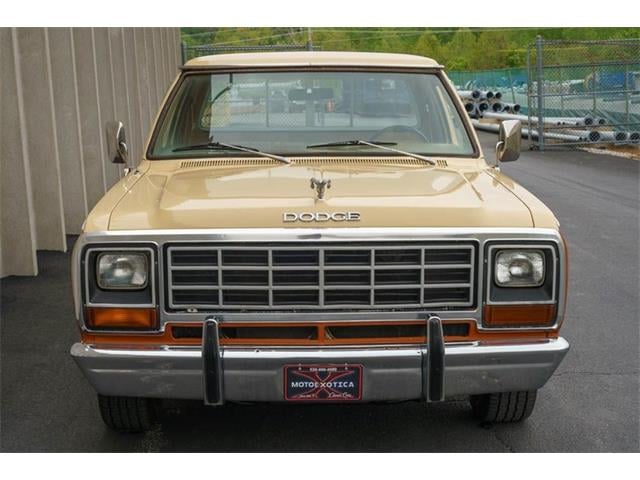
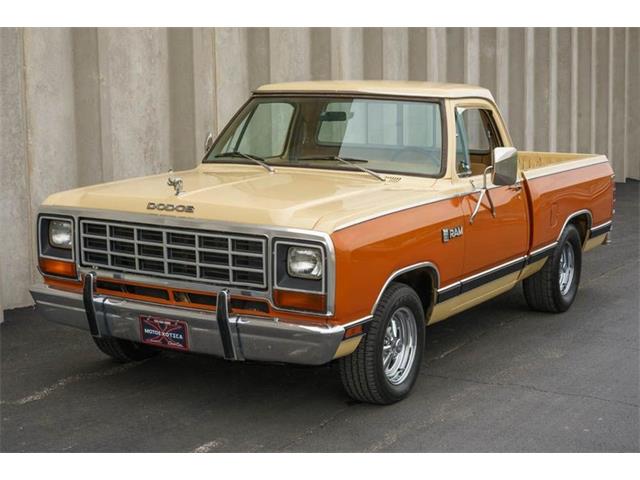
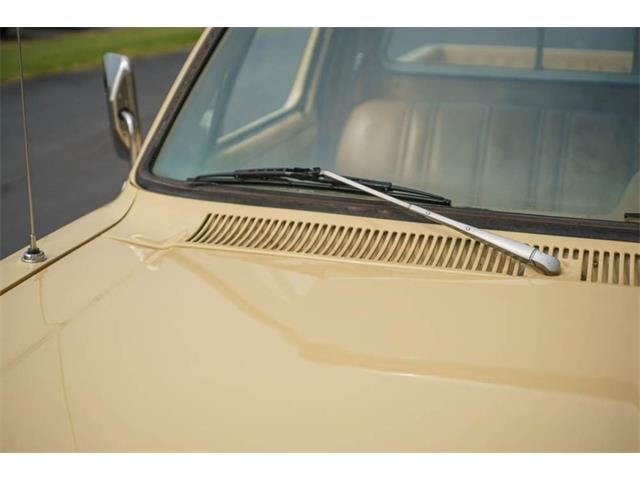
While they were routinely popular with fleet customers, Dodge
perennially trailed behind Ford and General Motors in the
light-truck non-fleet sales race until the 1990s. This short bed
dodge has had the same Arkansas owner for the past 32 years where
it was always garaged!
This example was made in Chryslers Warren, Michigan truck assembly
factory.
This Ram pickup wears an eye-catching Cashmere and Flame (Impact)
Orange paint combination. The trucks paint and trim are in overall
very good order. The trucks bodywork is straight and solid, the
engine bay is tidy and the cargo box is solid but shows use over
the decades. The chrome bumpers fit tightly to the body as well and
theres a Ram hood ornament at the leading edge of the hood. Both
doors have window rain and wind guards. The underside is very
clean, solid and original.
This truck rolls on BFGoodrich Comp T/A radials, size 235/60R15 in
front and 275/60R15 in back. Each tire is mounted on a Cragar SS
magnesium wheel for additional flair. The wheels and tires are all
in very good order.
Under the counterbalanced hood is a 318 CID OHV engine with a
four-barrel carburetor (code LA). Backing this motor is a
Torqueflite three-speed automatic transmission. Driver convenience
features include air-conditioning, power steering and power brakes.
A/C compressor does not engage.
Inside, the Cashmere vinyl interior is in overall very good order
for its age. The bench seat looks great, with only some minor rips
visible in the drivers side seat bottom. Fuel gauge is inop. The
matching carpet is in satisfactory shape while theres a black,
four-spoke, deep-dish steering wheel. The Cashmere-colored
dashboard and inner door panel are in very good order. The dash
design shares a lot of shapes and parts with the passenger cars
from that year, such as the air-conditioning vents, radio and HVAC
controls. A column-mounted shifter and a factory AM radio round out
the interior.
The first-generation Dodge Ram trucks and vans introduced in
October 1980 feature a Ram hood ornament first used on Dodge
vehicles from 1932 until 1954. Not all of the first-generation
trucks have this ornament and is most commonly seen on
four-wheel-drive models. Dodge kept the previous generations model
designations: D or Ram indicate two-wheel drive while W or Power
Ram indicate four-wheel drive. Just like Ford, Dodge used 150 to
indicate a half-ton truck, 250 for a three-quarter-ton truck and
350 for a one-ton truck. The truck models were offered in standard
cab, "club" extended cab and crew cab configurations. They also
were offered along with 6.5- and eight-foot bed lengths and
"Utililine" and "Sweptline" styled boxes along with standard
boxes.
Externally, the first-generation Rams were facelifted versions of
the previous generation Dodge D-Series pickups introduced in 1972.
The new model introduced larger wraparound tail lamps, dual
rectangular headlamps, and squared-off body lines. Engine choices
were pared down to the 225 slant-six and 318 and 360 V-8s. The
interior was updated and included a new bench seat and a completely
new dashboard and an instrument cluster with an optional three-pod
design - a speedometer in the center, with the two side pods
containing an ammeter on the top left, a temperature gauge on the
bottom left, a fuel gauge on the top right and an oil pressure
gauge bottom right. Models without the full gauge package had only
indicator lights in the place of the temperature and oil pressure
gauges. Among the options offered on the Ram were front bumper
guards, a sliding rear cab window, air-conditioning, cruise
control, tilt steering column, power door locks and windows, AM/FM
stereo with a cassette tape player, styled road wheels, aluminum
turbine-style mag wheels, special paint and stripe packages,
two-tone paint and a plow package for four-wheel-drive models
(referred to as the "Sno Commander").